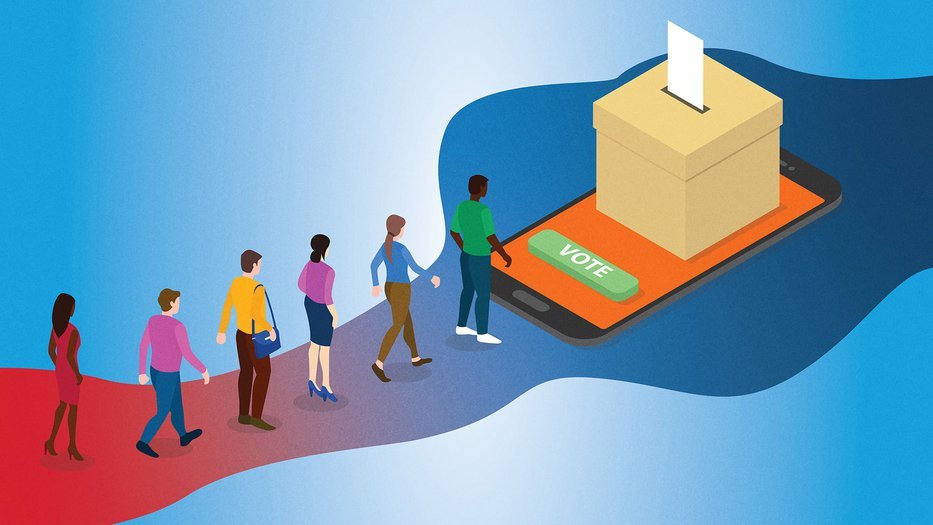New Delhi: In the digital age, political campaigning has undergone a seismic transformation, propelled by the pervasive influence of technology. Gone are the days of traditional methods like door-to-door canvassing and print advertisements as primary campaign tools. Instead, candidates harness the power of social media, data analytics, and targeted advertising to engage with voters, shape public opinion, and secure electoral victory. This essay delves into the multifaceted role of technology in contemporary political campaigning, exploring its impact on strategy, outreach, and democracy itself.
The Evolution of Political Campaigning:
Historically, political campaigning relied on mass media platforms such as newspapers, radio, and television to disseminate messages to the electorate. However, the advent of the internet and social media platforms like Facebook, Twitter, and Instagram revolutionized the landscape. These platforms offer unparalleled reach and immediacy, enabling candidates to directly communicate with voters, bypassing traditional gatekeepers.
- Harnessing Social Media:
Social media platforms serve as virtual town squares where political discourse flourishes. Candidates leverage these platforms to build brand awareness, mobilize supporters, and cultivate a loyal following. Through regular posts, live streams, and interactive content, politicians humanize their campaigns, fostering a sense of intimacy with voters. Moreover, social media facilitates real-time feedback, allowing candidates to gauge public sentiment and adjust their messaging accordingly.
- Targeted Advertising and Data Analytics:
One of the most potent tools in the modern political arsenal is targeted advertising fueled by data analytics. Campaigns amass vast troves of data on voters’ demographics, preferences, and behaviors, enabling them to micro-target specific constituencies with tailored messages. By analyzing online activity and social media interactions, campaigns can identify swing voters and deploy persuasive ads designed to sway their allegiance. This precision targeting maximizes the efficiency of campaign spending, ensuring that resources are allocated where they will have the greatest impact.
- Grassroots Mobilization:
Technology facilitates grassroots mobilization by empowering volunteers and activists to organize and coordinate efforts more effectively. Platforms like Slack and NationBuilder enable campaign staff and volunteers to collaborate in real-time, streamlining logistics and amplifying outreach efforts. Furthermore, peer-to-peer messaging apps like Hustle and Relay enable supporters to engage directly with potential voters, fostering authentic connections and grassroots momentum.
Challenges and Controversies:
While technology offers unparalleled opportunities for political campaigns, it also presents significant challenges and controversies.
- Disinformation and Fake News:
The proliferation of fake news and disinformation campaigns poses a significant threat to the integrity of democratic elections. Malicious actors exploit social media algorithms to disseminate false narratives, sow discord, and undermine trust in the electoral process. Moreover, the viral nature of social media amplifies the reach of misinformation, making it increasingly difficult to combat.

- Privacy Concerns:
The collection and utilization of vast amounts of personal data raise profound privacy concerns. Campaigns employ sophisticated data analytics techniques to micro-target individuals based on their online behavior, blurring the lines between legitimate political outreach and intrusive surveillance. Furthermore, the Cambridge Analytica scandal exposed the potential for abuse and manipulation inherent in the nexus of big data and political campaigning.
- Digital Divide:
Despite the ubiquity of technology, significant segments of the population remain digitally disenfranchised. Socioeconomic disparities in access to the internet and digital literacy exacerbate existing inequalities in political participation. Consequently, marginalized communities risk being marginalized further in the digital realm, perpetuating structural inequities in the political process.
The Future of Political Campaigning:
As technology continues to evolve, so too will the landscape of political campaigning. Emerging technologies like artificial intelligence, virtual reality, and blockchain hold the potential to revolutionize how campaigns are conducted and elections are contested.
- Artificial Intelligence:
Artificial intelligence (AI) promises to revolutionize political campaigning by automating tasks, optimizing strategy, and personalizing outreach. AI-powered chatbots can engage with voters in natural language, providing information, answering questions, and soliciting feedback. Moreover, machine learning algorithms can analyze vast datasets to identify trends, predict voter behavior, and optimize advertising campaigns in real-time.
- Virtual Reality:
Virtual reality (VR) offers immersive storytelling opportunities that can galvanize support and shape public perception. Campaigns can use VR technology to transport voters to virtual rallies, town halls, and campaign events, enabling them to experience the candidate’s message firsthand. Furthermore, VR simulations can facilitate empathy-building exercises, fostering greater understanding and solidarity among diverse constituencies.
- Blockchain Technology:
Blockchain technology holds the potential to revolutionize election administration and safeguard the integrity of the electoral process. By leveraging cryptographic techniques and decentralized networks, blockchain-based voting systems can ensure transparency, security, and verifiability. Moreover, blockchain technology can streamline voter registration, authentication, and ballot counting, reducing administrative overhead and mitigating the risk of fraud.
The integration of technology into political campaigning has fundamentally transformed how elections are contested, reshaping strategies, tactics, and dynamics. Social media, data analytics, and targeted advertising have become indispensable tools in the modern political arsenal, enabling candidates to engage with voters on a scale and granularity previously unimaginable. However, this technological revolution also presents profound challenges and controversies, from the proliferation of fake news to concerns about privacy and digital equity. As we look to the future, emerging technologies like artificial intelligence, virtual reality, and blockchain hold the promise of further revolutionizing political campaigning, ushering in a new era of innovation, engagement, and democracy.






